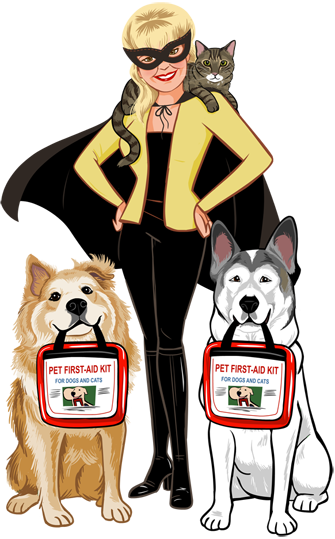https://images.unsplash.com/photo-1656409200365-1625c84a538d?q=80&
If your dog is two years or older, you may assume that his or her behaviors have become predictable and have learned what triggers their emotional outbursts. However, what if you’re at your normal dog park where your pooch has enjoyed being social with other canine pals and playing but out of the blue, he starts lunging and barking at another dog or person nearby? Out of the blue does not happen that frequently, when a dog bites someone, actually the dog has given several warnings prior that were ignored:
- The dog becomes stiff or rigid.
- The dog looks at you out of the corner of their eye. This is sometimes called the “crescent moon” as that is the shape of the white of their eye you see when they take on this posture.
- Ears press back against head.
- Tail is at high alert or drops down below the parallel line of the dog’s body.
- Vocalization
Several things could cause a normally well-behaved dog to act out, and some breeds get a bad rap by people wrongly assuming they are aggressive. Any animal has the ability to bite, but even the biggest and strongest do not. In this article, we will discuss why dogs show sudden aggression and what to do about it.
Possible Causes Behind Sudden Aggression
Socializing your dog from the moment he or she becomes part of the family is of prime importance. Get your best friend used to noises such as the vacuum cleaner and car horns; moving objects like bicycles, skate boards, even walkers and wheel chairs. Helping your dog acclimate to sounds and sights as well as become comfortable around other animals and people can set him up for success. Additionally, Humans need to learn manners, and so do dogs. Obedience training is a great place to start!
If you have a well-adjusted and well-socialized dog, then sudden aggressive behaviors like growling, crouching, excessive barking, or muzzle munching would seem out of the ordinary and are certainly not confined to any specific breed. Sudden onset aggression may be to to a serious underlying condition including those mentioned below:
Pain
An infected tooth or lower back pain can make a human grouchy for sure. If your pooch is usually affectionate but has ceased to be so for some time, pain may be the underlying cause. Check if its leash or training equipment is comfortable. In case they are not, your canine companion might be experiencing too much pressure and pain around its neck or other areas of the body.
It takes little time for the physical discomfort to turn into psychological stress. The limited escape route could be driving it to frustration, which it might be taking out on other dogs or their owners when outside.
Moreover, the pressure generated by the leash could trigger your Rover’s instincts to fight. Even if there is no immediate threat, it may react negatively.
Fear or Trauma
Canines who are frightened by an animal or person develop long-lasting fear.
According to VCA Animal Hospitals, a single traumatic event is enough to trigger extreme fear for the event or person. For instance, if a dog experiences maltreatment at the hands of a child as a pup, it may develop a chronic fear of all children. This means it will react or downright attack a child even if there is no threat involved.
In some cases, the fear has to do with a lack of socialization during the early months. Puppies who have not socialized enough by the age of 14 weeks tend to become socially scared adult dogs. They may attack when around strange faces in a park or at home. Such causes come under idiopathic aggression, an area that is still being studied in depth.
Health-Related Causes
Physical illness, even in humans, does not just affect the body. It invades the mind and leads to confusion, a sense of helplessness, and frustration. All these painful emotions can manifest themselves in the form of sudden aggression. Dogs also do not like to feel physically or mentally vulnerable.
If they’re not keeping good health, the pain triggers aggressive behaviors. This is especially true for senior canines experiencing conditions like arthritis, hyperthyroidism, or cancer.
Consequences to Be Aware Of
Besides the causes we previously discussed, others such as extreme heat, also play a major role. Unlike humans, dogs are unable to remove heat quickly from their bodies. Most of their heat loss happens through panting and a little through each paw. If they find it challenging to regulate body temperature, aggression is the outcome.
If your friendly pet is becoming ferocious on the streets, look for obvious signs. Are there new animals or people in the neighborhood, or even your household, that might make your dog feel threatened? Do you continue to socialize your pup? Then, explore deep-seated reasons like past experiences, health issues, or breeding problems.
Take them to the vet and try to find out the possible cause(s). This is not a trivial matter, as it can have serious repercussions for you and your Fido.
In Chicago, Illinois, 33% of households own a dog. Not surprisingly, the city has plenty of options for pet parents to enjoy with their four-legged friends. The Puptown Dog Park and Norwood Park are among the most popular parks for pets and their parents to stretch, relax, and play. Even if your dog is well-mannered, children may not be and are often intentionally or unintentionally cruel to animals, pulling tails, screeching, and slapping. Parents should teach kids how to interact and safely, as well as kindly, approach a dog. As mentioned earlier, before a dog bites, he usually gives several warnings which must have been ignored, so is possible for a dog to bite to protect himself from harm.
If, however, you observed displaced aggression in your dog for some time, that would count as negligence as you should not have your pet make contact with any animals or individuals that could cause him to act out. This means the child’s parents can sue you with the help of a personal injury lawyer in Chicago.
According to TorHoerman Law, only three important conditions are required for the injured party to file a lawsuit –
- The animal attacked and caused injuries or attempted to attack
- The injured party had the right to be present in the place where the attack took place
- The animal was not provoked
If liability on these grounds is proven, you would have to shell out hundreds or even thousands as compensation to the victim.
In some extreme cases of repeated attacks or attempts, your pet may be taken into custody and euthanized. This is an outcome we never want to see occur. Steer clear of such consequences by taking a proactive approach to managing your pooch’s sudden aggression.
Solutions That May Help the Situation
Having discussed the causes and consequences of sudden aggression in dogs, let’s proceed with possible solutions. Here are some ways to keep the problem from assuming historic proportions –
- Make sure you do not slack off with your dog’s socialization. Even when it becomes an adult, keep it active in the community’s social circle, among other dogs and their owners
- Avoid using punishments, but reinforce positive behaviors with treats and other rewards
- Check from relevant sources if your four-legged friend has had any traumatic past experiences contributing to its current aggression. That may help identify its triggers
- Don’t skip routine checks with the vet for any underlying illness that may be causing the aggression
In the final analysis, dogs do not attack or bite with a desire to hurt others. Aggression is usually a cry for help with a problem they are experiencing: pain, fear or something else. Visit a certified animal behaviorist to understand what’s driving your canine companion to aggressive behaviors. The sooner you address the issue, the better your dog’s chances of improvement.









